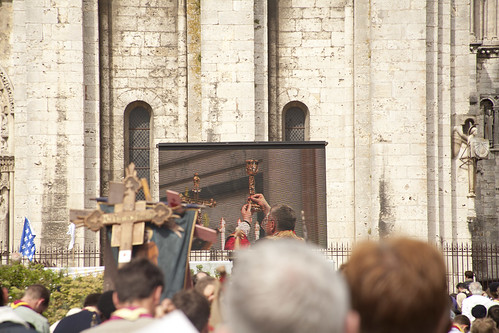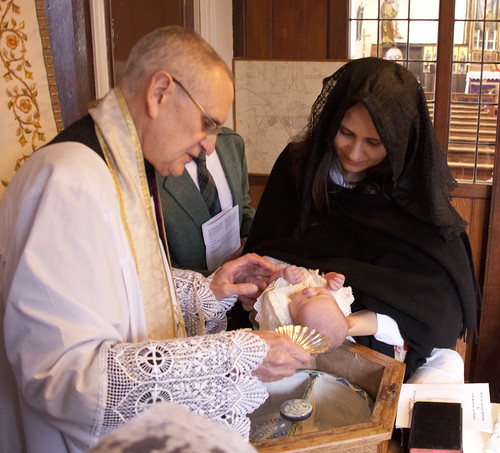Chairman's Blog
Cardinal Pell and Australia's anti-clericals
 |
| Captain Alfred Drefus |
My latest on LifeSite, on Cardinal Pell, Dreyfus, and the liberal narrative on clerical sex abuse.
--------------
After 405 days in prison, Cardinal George Pell has finally been freed after the High Court of Australia overturned his convictions for sexual abuse of a minor.
The seven judges sitting on the High Court were, remarkably, unanimous, and delivered a single, two-page explanation of their decision. They pointed out that the jury and the Appeal Court had failed to acknowledge the force of the ‘opportunity witnesses’, who had testified that the abuse could not have taken place at the times and places alleged because, among other things, Pell would either have been elsewhere or surrounded by people. However convincing the testimony of the accuser, this other testimony introduced ‘reasonable doubt’, making conviction impossible.
There was, after all, no other evidence against Pell.
EF Triduum to be Live-streamed from Warrington
This is great news. Here is part of the Catholic Herald report which used the LMS press release on the subject.
-------
Archbishop Malcolm McMahon asked the priests at St Mary’s Shrine to live-stream their Holy Week ceremonies in order to “enable viewers to draw close to the sacred liturgy at the most important time in the Church’s calendar”.
The archbishop’s request comes after the Bishops’ Conference of England and Wales received several appeals to live-stream the Paschal Triduum in the Extraordinary Form. Fr Chris Thomas, General Secretary of the Bishop’s Conference, informed the Latin Mass Society of Archbishop McMahon’s request.
While the FSSP at Warrington have been live-streaming ceremonies for the past three years, this is the first time the bishops have specifically requested and endorsed their doing so.
As churches remain closed due to the coronavirus lockdown, St Mary’s Warrington is also one of the very few places in the country where five clerics are able to perform a Traditional Missa Cantata behind closed doors as they live as one household.
The Masses will be available to watch at LiveMass.net.
Read the whole report there.
Support the Latin Mass Society
Faggioli and liturgical onanism
 |
| Judah and Tamar. You can read abou them and Onan in Genesis 38 |
My latest on LifeSite. It may be worth noting that Prof Faggioli's tweet which I quote which seems to have beed deleted was only the saltiest of a number of tweets attacking the Bishops of Umbria; others can still be seen, here.
A queue for
 |
| A queue for confession in St Bede's, Clapham Park. |
My latest for LifeSiteNews.
Support the Latin Mass Society
Baptisms when public services can't take place
My latest on LifeSite
Continue reading over there.
Support the Latin Mass Society
LMS Guide to Holy Communion, Confession, and Baptism during the lockdown
 |
| St Charles Borromeo ministering to victims of the plague in Milan |
The Latin Mass Society has published these short but comprehensive guides to the Sacraments of Holy Communion, Penance, and Baptism, while getting access to priests is restricted or impossible, in light of the Extraordinary Form and the Traditional Practice and Discipline of the Church.
What is a perfect act of contrition? What value has watching a live-streamed Mass? When would it be justified to baptise infants in the absence of a priest? Is it possible to gain indulgences if one can't go to Communion? What is the ceremony of 'supplying the ceremonies' after an emergency bapism?
Your questions are answered.
New Prefaces and new Saints for the EF: Press Release from the FIUV
[1]
[1]
Second Vatican Council Decree on the Apostolate of the Laity Apostolicam actuositatem 5
Joy amid sorrow
 |
| Last Gaudete Sunday, Holy Trinity Hethe with Fr Richard Conrad OP |
My latest on LifeSite.
This Sunday has a unique distinction in the Church year—a day of joy in the season of penance and sorrow! …All the Mass texts ring with joy; the entrance song is a joyous shout, ‘Laetare—rejoice!’
Mass at a distance: devotional aids
 |
| Mass in Chartres Cathedral relayed to Pilgrims outside (2014) |
Tomorrow for the first time in my life I am going to sit down to watch the celebration of Mass on my computer screen. I'm not a great one for watching liturgy on screens. The experience of the liturgy cannot easily be reproduced through a screen, and indeed it is important to remember that at the end of the day one is looking at a (moving) picture of Mass, by contrast with one one can see, for example, through a window or a glass door. (I have extensive experience of following the Mass through windows and doors, in the company of small children who need a breath of fresh air.)
Huge screens outside a church for the overflow crowd, as we have at Chartres Cathedral for the Chartres Pilgrimage, are rather different, as you know it is happening right there in the church and the people around you are all taking part in the usual way. But no one would suggest that these are as good as being in the church.
But in one's home? In one's work space? On a little mobile device?
In these strange times we must do the best we can, and if we can't get to church, this is better than nothing. The experience of a live, as opposed to pre-recorded, Mass will give us a more intimate connection with what is happening, and it will be the liturgy of today, the liturgy intended by the Church specially for this moment in the Lenten season.
The Latin Mass Society has collected links to live-streaming Masses being celebrated in England and Wales here.
To get the most out of it we should consider the ideal preparation one might make for Mass: not only prayer, but looking ahead at the texts, and commentaries on the texts. The great liturgical commentaries of Prosper Gueranger, Ildefonso Schuster, and Pius Parsch - especially the last of these - are intended to facilitate the Faithful in liturgical participation precisely through explaining the texts in themselves and in the context of the season and feast. If we can't get the ordinary liturgical experience, nor receive Holy Communion, one can at least do this.
The LMS online shop has a number of books which explain the Traditional Mass, which will be helpful not only to the newcomer but to even long-established EF Mass-goers.
If you don't have a hand Missal, this situation should prompt you to get one. The Latin Mass Society's online shop has a large range of Missals for the Traditional Mass, for children, for Sundays only, and ones with pretty well everything one can find in the Altar Missal, with a facing translation. We even have a Latin-Polish Missal, with an Imprimatur from a certain Bishop Wojtyła: pretty cool, eh?
You will find that even the smaller ones have lots of things in addition to the text of Mass: lots of traditional devotions and prayers, prayers for Confession, and often very useful explanations and commentaries on the Mass. Your hand missal is your spiritual treasure-trove.
Even without a live-stream of Mass, you can pray the prayers of the Mass and meditate on them, using your hand Missal. Peter Kwasniewski discusses it here, and provides downloads to assist you further, with the texts of Mass and prayers for a Spiritual Communion.
Acts of Spiritual Communion are of particular importance at this time. Here is most widely used one, by St Alphonsus of Ligouri.
My Jesus, I believe that thou art present in the Most Holy Sacrament. I love thee above all things, and I desire to receive thee in my soul. Since I cannot at this moment receive thee sacramentally, come at least spiritually into my heart. I embrace thee as if thou wert already there, and unite myself wholly to thee. Never permit me to be separated from thee. Amen.
Also to be considered, particularly if the lockdown continues for a long time, is the reception of Holy Communion outside Mass. A century ago it was the universal practice: Holy Communion was distributed between Masses, and on demand outside Mass, as Confession is often provided today.
Gerard Manley Hopkins wrote a lovely poem about giving a First Holy Communion in this way to a little bugler boy:
| Here he knelt then ín regimental red. | |
| Forth Christ from cupboard fetched, how fain I of feet | |
| To his youngster take his treat! | |
| Low-latched in leaf-light housel his too huge godhead. |
The law of the Church still gives the Faithful the right to receive Holy Communion outside Mass, and the current situation is one in which this right has an application which it would not normally have. While being sensitive to the extra demands being made on many of the clergy dealing with the sick, it is legitimate to ask if this can be arranged, with all necessary precautions. I know one priest who is making slots available for advance booking for Holy Communion. This should become widespread. The ritual to be followed for this in the Extraordinary Form has been made available by Una Voce Scotland in handy downloadable pdf format.
Prayer resources for epidemic
 This Lent we are experiencing a special time of penance, including the cessation of public liturgies, even those of Easter itself.
This Lent we are experiencing a special time of penance, including the cessation of public liturgies, even those of Easter itself.With this in mind I have created a printable booklet with the Seven Penitential Psalms in it (free download). Yes you can find these on lots of websites but this booklet has a facing translation, stress marks on the Latin, and 'pointing' to facilitate singing.

